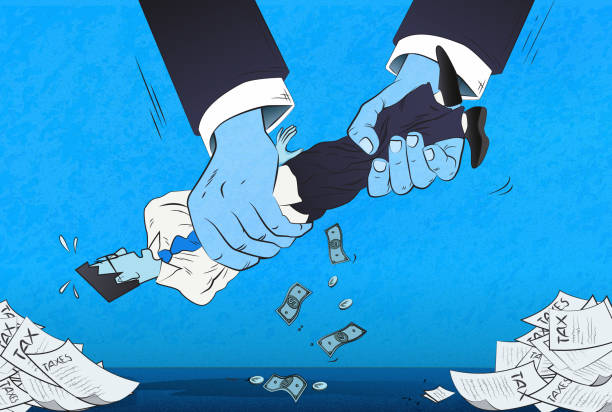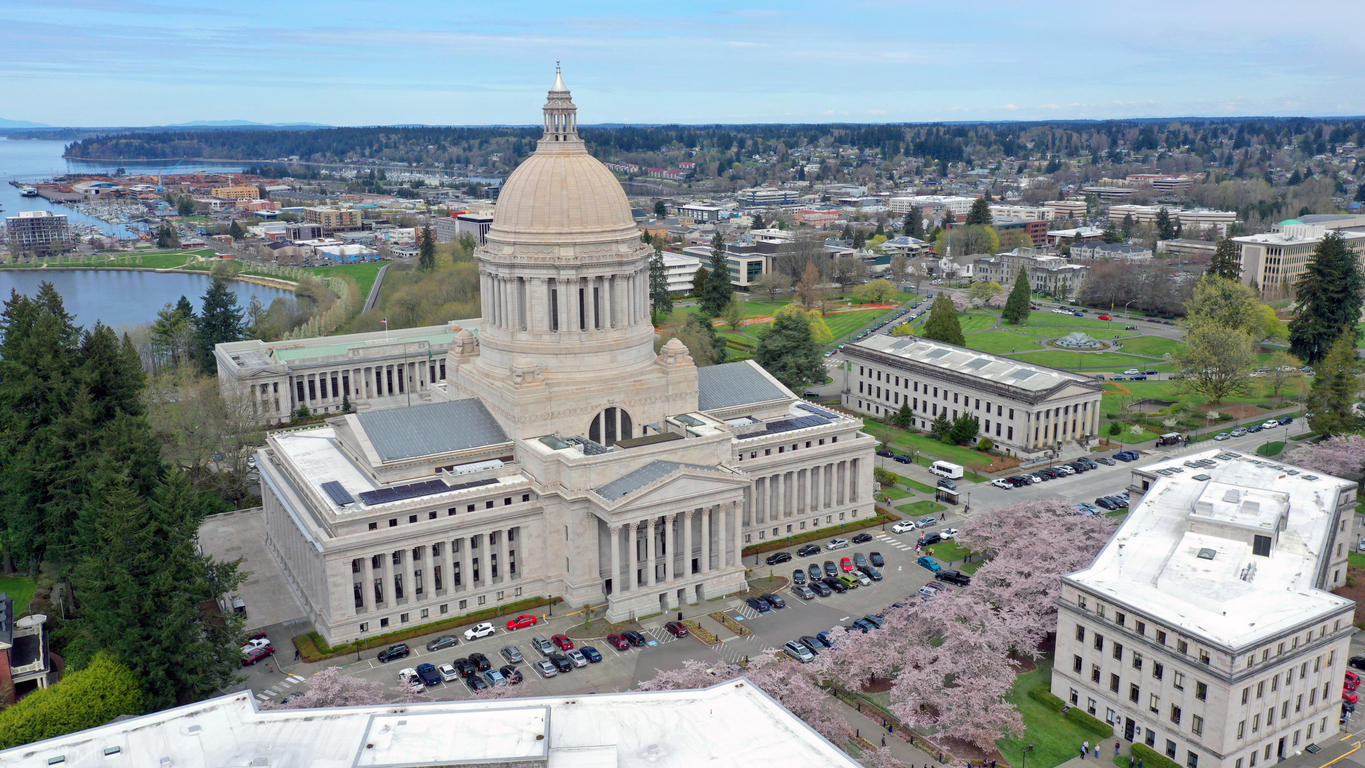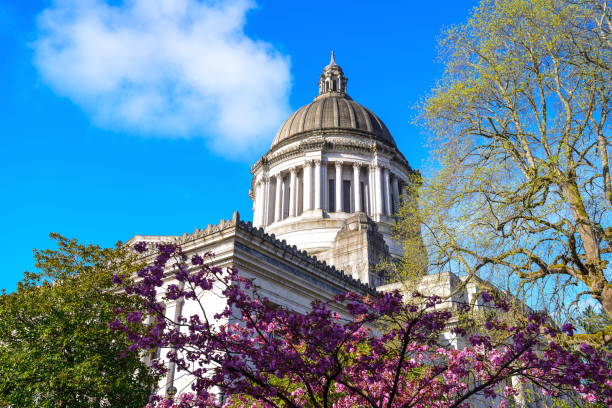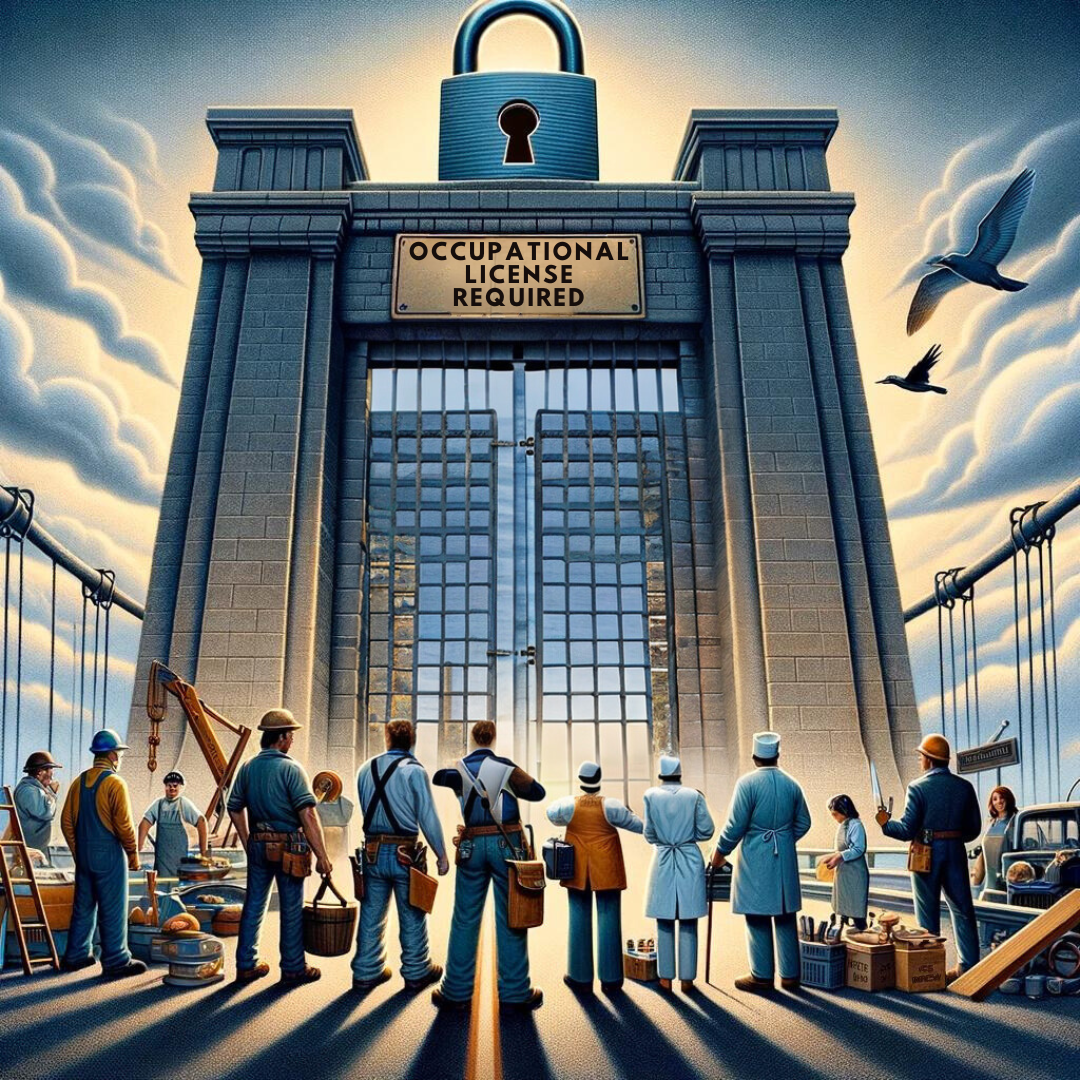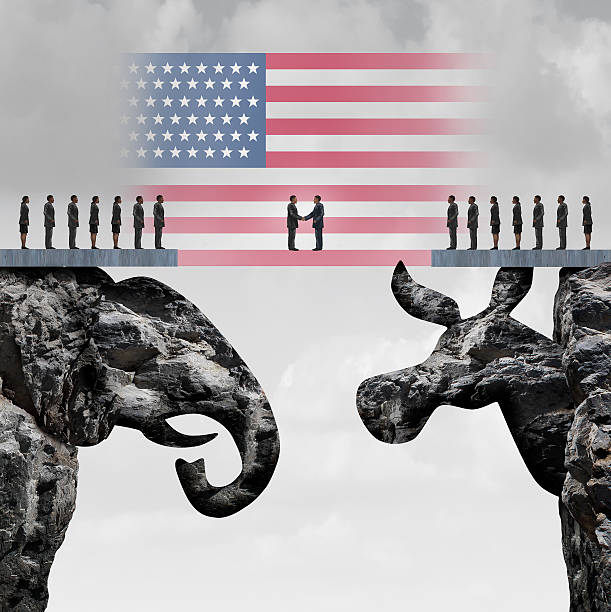Emergency clause reform scheduled for public hearing
The Senate Committee on Governmental Operations will hold a public hearing on Monday (Jan 28) to take public comment on SJR 8206: Amending the Constitution to require emergency clauses only be allowed by amendment to a bill and approved by sixty percent of each house of the legislature.
According to the bill report for SJR 8206 the proposal would amend:
Article II, section 1(b) of the Constitution revising the provisions relating to the passage of emergency clauses in legislative acts will be submitted to the voters at the next general election for their approval and ratification or rejection. The constitutional amendment submitted to the voters will state the following:
- ?an emergency clause may only be introduced in the form of an amendment to a bill;
- passage of an amendment containing an emergency clause requires the affirmative vote of 60 percent of the members of each house of the Legislature; and
- emergency clauses included in appropriations bills authorizing expenditures for operating, transportation, or capital purposes are exempt from these requirements.
This proposed constitutional amendment is necessary to ensure the people truly have the right of referendum.
To provide a check on the legislature, the state constitution grants the people the power to veto unwanted legislation through the use of a referendum. According to the Secretary of State, “The referendum allows citizens, through the petition process, to refer acts of the legislature to the ballot before they become law.” This power applies to any bill adopted by the legislature except those that include an “emergency clause.”
An emergency clause states that a bill is exempt from repeal by referendum because the bill is, “necessary for the immediate preservation of the public peace, health or safety, support of the state government and its existing public institutions.” The use of the emergency clause allows bills to take effect immediately once signed by the governor.
The purpose of the emergency clause is to allow state government to respond quickly to true public emergencies, like a large-scale natural disaster or wide-spread epidemic disease. Yet over the years lawmakers have routinely abused the exemption by attaching emergency clauses to 954 bills since 1997, including 23 bills during the 2012 legislative session.
Emergency clause usage by Legislature 1997-2012
Year | Number of bills enacted | Bills with emergency clauses | Percentage |
1997 | 458 | 96 | 21% |
1998 | 348 | 42 | 12% |
1999 | 413 | 77 | 19% |
2000 | 262 | 28 | 11% |
2001 | 371 | 90 | 24% |
2002 | 368 | 54 | 15% |
2003 | 445 | 88 | 20% |
2004 | 277 | 45 | 16% |
2005 | 517 | 96 | 19% |
2006 | 370 | 33 | 9% |
2007 | 525 | 73 | 14% |
2008 | 328 | 23 | 7% |
2009 | 583 | 68 | 12% |
2010 | 336 | 42 | 13% |
2011 | 436 | 76 | 17% |
2012 | 277 | 23 | 8% |
Total | 6,314 | 954 | 15% |
Average | 395 | 60 | 15% |
Though the use of the emergency clause dropped in 2012, there is no guarantee that this trend will continue. The most effective way to end the legislature’s abuse of the emergency clause is a constitutional amendment creating a supermajority vote requirement for its use. The legislature would then be prohibited from attaching an emergency clause unless the bill was approved by a 60 percent vote. Budget bills, however, could be made exempt from the supermajority vote requirement, allowing them to pass with a simple majority and not be subject to referendum.
Constitutional reforms are needed due to the State Supreme Court's refusal to provide the legislature guidance on what an appropriate use of the emergency clause looks like and instead granting total deference to a legislative declaration of an emergency. The first opportunity the Supreme Court had to address the legislature's questionable use of an emergency clause was in 1995 with the passage of SB 6049 – Providing public funding for the Mariners’ stadium in Seattle.
In a 6-3 ruling upholding the denial of a referendum, the Court said:
"Ultimately, the emergency that faced the Legislature was that the Seattle Mariners would be put up for sale on Oct. 30 (1995) unless, prior to that date, the Legislature enacted legislation that would assure the development of a new publicly owned baseball stadium for King County."
The Supreme Court had an opportunity to revisit this ruling in 2005 when faced with the question of whether the legislature's suspension of the voter-approved two-thirds vote requirement for tax increases was an emergency warranting denial of a referendum.
Again in a 6-3 ruling the Court upheld the legislature declaration of an emergency. The impact of the ruling was to give the legislature a blank check to use emergency clauses any time it wants. This has the effect of routinely stripping the people of their right of referendum. The dissenting judges, however, wrote blistering objections to the majority’s decision.
For example, former Justice Richard Sanders warned that the ruling allows the legislature to avoid the people’s right of referendum:
“Where the Legislature uses an emergency clause simply to avoid a referendum rather than respond in good faith to a true ‘emergency’ . . . and where the court essentially delegates its independent role as a constitutional guardian to the legislative branch of government in its power struggle against the popular branch of government; I find little left of the people’s right of referendum.”
Here are examples of bills adopted with emergency clauses:
- SB 6049 – Providing funding for Mariners’ stadium in Seattle (passed in 1995).
- SB 6819 – Suspending 2/3 vote requirement for tax increases and for expenditures from emergency reserve account (passed in 2002).
- SB 6828 – Securitizing the revenue stream from the tobacco settlement agreement (passed in 2002).
- SB 5097 – Requiring the use of apprentices on public work projects (passed in 2005).
- SB 6078 – Suspending 2/3 vote requirement for tax increases and changing the calculation of the state spending limit (passed in 2005).
- SB 6103 – Increasing transportation-related taxes (passed in 2005).
- SB 6096 – Creating a state-only death tax (passed in 2005).
- HB 1397 – Adopting California vehicle standards (passed in 2005).
- HB 2255 – Adopting changes to the state’s unemployment insurance system (passed in 2005).
- HB 2314 – Increasing various state taxes (passed in 2005).
- SB 6896 – Increasing the state spending limit (passed in 2006).
- SB 5659 – Establishing family and medical leave insurance (passed in 2007).
- SB 6130 – Suspending 2/3 vote requirement for tax increases (passed in 2010).
- SB 6143 – Increasing various state taxes (passed in 2010).
- HB 2319 - Expanding state health insurance exchange and implementation of the federal health care law (passed in 2012)
Here are examples of bills containing an emergency clause that were proposed but not adopted:
- HB 2062 – Funding construction of a new NASCAR race track (2007)
- SB 5986 – Funding the Sonics’ basketball arena in Seattle (2007)
- SB 5937 - Implementing a "temporary" sales tax increase (2012)
In Washington the Governor has sectional veto authority over bills passed by the legislature. Responding to the public outcry over abuse of the emergency clause, former Governor Gregoire vetoed the emergency clauses off of several bills before signing them into law. Despite these positive steps, the Governor failed to veto the emergency clauses off of all controversial bills adopted demonstrating the need for constitutional emergency clause reform.
Here are excerpts from some of Gregoire’s veto messages, in which she explains her reasons for removing the emergency clause from certain bills:
“An emergency clause is used when immediate enactment of a bill is necessary to preserve the public peace, health, or safety or when it is necessary for the support of state government. It should be used sparingly because its application has the effect of limiting citizens’ right to referendum.” (Line-item veto of HB 1000, April 17, 2007.)
“Emergency clauses should be used sparingly and only when necessary.” (Line-item veto of HB 1811, May 11, 2007.)
“Emergency clauses should be restricted to bills that address public emergencies.” (Line-item veto of HB 1883, May 14, 2007.)
“We believe that the desire to avoid potential inconvenience should not be treated as a public emergency warranting an emergency clause.” (Line???item veto of HB 2118, May 11, 2007.)
If a true public emergency occurs that warrants denying the people their right of referendum, a 60 percent vote requirement in the legislature should not be difficult to achieve. In the case of a true emergency, the public would most likely welcome the use of the emergency clause by the legislature, recognizing it is intended to be used at just such a time. Political convenience, however, should no longer serve as a reason to deny the people their right of referendum.
Update 1/28
Here is my testimony on SJR 8206:



